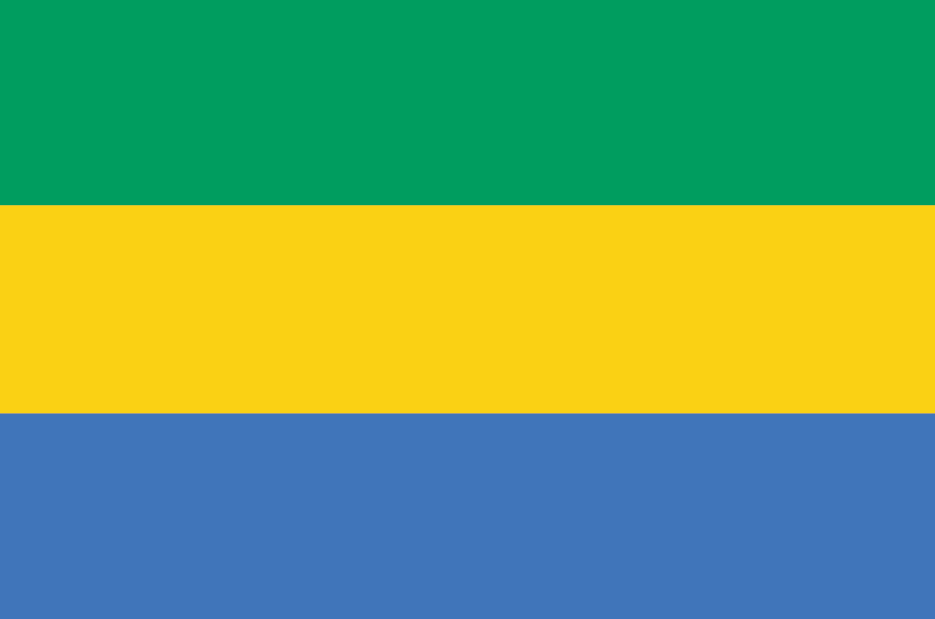
Sustainability Efforts
Country: Gabon
Explore sustainability efforts in Gabon. The United States Environmental Protection Agency (“EPA”) said it well when they state:
“Sustainability is based on a simple principle: Everything that we need for our survival and well-being depends, either directly or indirectly, on our natural environment. To pursue sustainability is to create and maintain the conditions under which humans and nature can exist in productive harmony to support present and future generations.”
About Gabon
Gabon, located in Central Africa, is known for its rich biodiversity and stunning natural landscapes. The country is home to dense rainforests, savannas, and coastal mangroves. Libreville is the capital city and a vibrant cultural center. Gabon is renowned for its national parks and wildlife reserves, including Loango National Park, known for its diverse wildlife and pristine beaches. The country’s economy relies heavily on oil production, but efforts are being made to promote sustainable development and preserve the environment. Gabon is home to various ethnic groups, each with its own unique traditions and cultural practices. The country has a strong music and dance scene, with traditional music blending with modern styles. Gabonese cuisine features a variety of seafood, vegetables, and tropical fruits. Gabon’s commitment to conservation and its natural wonders make it a destination for eco-tourism and wildlife enthusiasts. Sustainability efforts in Gabon will enhance the country’s future.
Sustainability Efforts
Toggle each button below to “open” and “close” the presented data.

Poverty: Gabon has actively sought to reduce poverty through its Strategic Plan for an Emerging Gabon (PSGE). The country's efforts to diversify its economy away from oil dependence, with initiatives in the forestry, agriculture, and tourism sectors, have resulted in moderate success. The World Bank estimated that over 32% of the population lived below the poverty line in 2017. There is an increased push towards socioeconomic inclusion to further alleviate poverty levels.

Hunger: While Gabon is largely self-sufficient in food production, hunger persists due to disparities in distribution and access. Gabon's government has collaborated with the World Food Program to address malnutrition, especially in vulnerable populations.

Healthcare: Healthcare in Gabon has witnessed improvements in recent years with the establishment of the National Health Development Plan. Investments have been channeled into medical infrastructure, training healthcare professionals, and tackling diseases like malaria. In 2018, Gabon introduced universal health insurance to ensure that more citizens have access to quality healthcare.

Education: Gabon's government has committed to increasing school enrollment and improving the quality of education. With aid from organizations like UNICEF, there's been a push towards ensuring primary education for all. As of 2016, the literacy rate stood at over 82%.

Gender Equality: Gabonese women have made strides in both education and political representation. The government has encouraged female participation in leadership roles, with women representing about 17% of the national assembly members. Moreover, legal frameworks are being strengthened to address gender-based violence.

Clean water sanitation: Access to clean water and sanitation has been a primary focus for Gabon, with support from international organizations. Efforts are being made to extend these services to rural areas. In 2015, approximately 89% of the urban population had access to improved drinking water sources.

Affordable clean energy: Gabon's energy sector is predominantly powered by hydroelectric sources, reducing the reliance on fossil fuels. Plans to expand the hydroelectric infrastructure, such as the Grand Poubara Dam, are ongoing.

Economic growth: Diversification of its economy beyond the oil sector is central to Gabon's sustainable economic growth strategy. There are active investments in the mining, forestry, and agricultural sectors to reduce oil-dependence.

Industry innovation: The PSGE underscores the importance of transforming Gabon into an industrialized nation by 2025. Initiatives include setting up special economic zones and bolstering the timber industry's value chain.

Reduced inequalities: Gabon continues to prioritize socioeconomic inclusion, especially for indigenous populations and marginalized communities. The country is working on providing equitable access to services and opportunities for all its citizens.

Sustainable cities: Urban development projects, particularly in Libreville, focus on creating eco-friendly, sustainable cities with better waste management, public transportation, and green spaces.

Responsible consumption and production: Gabon is at the forefront of sustainable timber production in Africa, with initiatives to ensure the traceability of timber and promote reduced-impact logging.

Climate action: Gabon is a signatory of the Paris Agreement and is committed to reducing its greenhouse gas emissions by up to 50% by 2025. The vast rainforests play a crucial role in carbon sequestration, further emphasizing the country's commitment to conservation.

Life below water: Gabon boasts over 800 km of coastline teeming with marine biodiversity. The government has initiated marine protected areas and combats illegal fishing to preserve its marine ecosystems.

Life on land: With over 80% of its land covered in rainforests, Gabon plays a pivotal role in global conservation. The country's national parks cover 11% of its territory, protecting diverse flora and fauna.

Peace and justice: Gabon has remained relatively peaceful in the Central African region. Efforts to strengthen the judiciary, combat corruption, and promote human rights are ongoing to ensure a just society.



